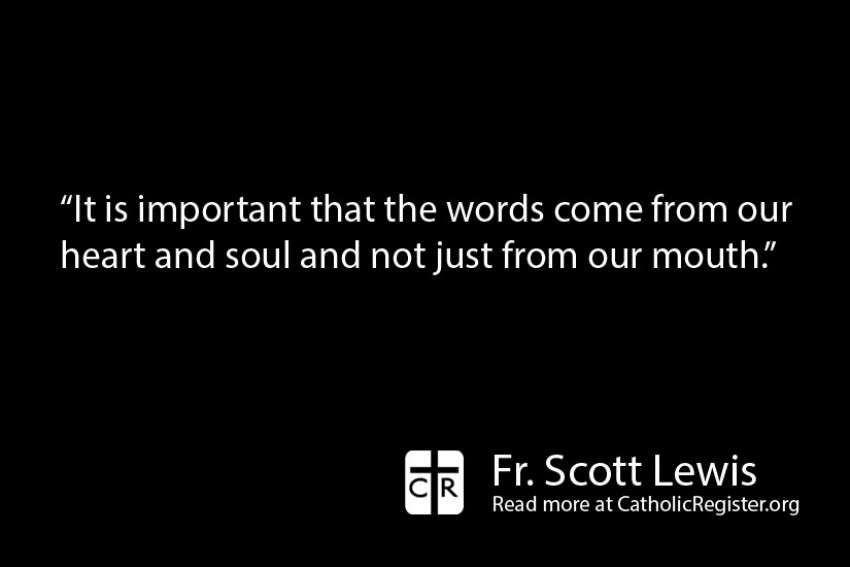God made it very clear in His instructions to Aaron through Moses that this was to be the blessing given to the people of Israel.
The blessing spoke of God’s kindness, compassion and mercy. There were no threats or commands, but only a wish that the people be happy and at peace.
There is something very personal and moving about this blessing — it urges God to look directly at the people with a kind and gracious face. With the light of God’s face shining upon us, how could we not feel happy and blessed?
The blessing ends with something rather enigmatic — God directs Aaron to place God’s name on the people, thereby assuring future blessings.
In many ancient cultures, a name signified the important characteristics of a person and even their nature.
God’s nature is kindness, graciousness and compassion. When we bless someone, we are asking God to perform the blessing, but we also join a part of ourselves to the blessing.
We can sense this sometimes when we hear a formal blessing. Some blessings touch us deeply, enabling us to feel the power and comfort of the words.
At times, however, the blessing is given in a perfunctory and cold manner, and the words quickly wither and die.
When Jesus spoke, the winds and sea obeyed Him and the demons trembled. While that is a tall order for all of us, we can keep in mind that our words and blessings have a great potential to heal and give hope. It is important that the words come from our heart and soul and not just from our mouth.
The blessing of Aaron is given to us on this first day of the year. God has put God’s mark or stamp on us and asks us to pass on this blessing.
Each day, we see examples of fear, loneliness, hurt and other forms of misery. Perhaps this year we can resolve to take our own capacity for blessing far more seriously. There are many who wait and long for it.
The greatest blessing of all was given in the person and ministry of Jesus: redemption and adoption as sons and daughters of God. The Spirit we receive opens our minds and hearts so that we can know in the deepest and most personal way that we are children of God.
When we cry, “Abba, Father,” it is a flash of enlightenment and recognition. We recognize our new and enhanced relationship, both to God and to one another. God’s face shone upon us through the face of the Lord Jesus, and continues to do so.
In the story of the angelic proclamation to the shepherds that we know so well, there are several messages for us to ponder. First, the declaration was made not to those in positions of honour or authority, but to the lowliest in society. Luke affirms throughout his Gospel that Jesus came to extend God’s mercy and compassion to the poor, the afflicted and the excluded.
Second, although Mary treasured the words and events in her heart, she had to ponder them. Not everything was immediately clear, even to the holy family.
The life of Jesus was something that had to unfold and develop, being revealed bit by bit. God reveals to us only what we are prepared and able to receive. Even now there are elements of the life, death and resurrection of Jesus that continue to unfold and be revealed for us.
Finally, when it came time for Him to be circumcised, He was given the name Jesus. We are told that this name had been given by the angel before He was even conceived.
The name means “God saves,” revealing two very important things. It confirms the compassionate and gracious nature of God, and points to God’s activity in our world.
It also describes perfectly the personality, life and teachings of Jesus.
All of this should be joyful news to everyone — the shepherds were beside themselves with joy and praise of God. Why, then, is this type of joy so rare in our own world?
Pope Francis reminds us that the most effective proclamation of the Gospel is joy.
With this in mind, may 2017 be a joy-filled year for all.


